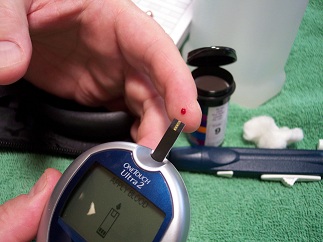Taking care of a child who has a chronic health condition such as cystic fibrosis or diabetes is no easy task. There are medications to take, appointments to keep and special diets to keep your child healthy. As a parent of a child with a chronic condition, I know all too well how difficult it is to let go of control and trust someone else to take care of these important matters. However, someday my child will be an adult, and as much as I would like to ensure she does her treatments, takes her medications and visits the doctor, the power needs to be handed over to her. It is a gradual process and must be done in separate stages based on the age and maturity level of your child. A chronic condition is a serious matter and taking care of yourself is an important job.
* Always be positive, open and honest with your child about her condition. Trying to sugarcoat important information could make your child feel that treatments and medications aren’t that important, but having a negative attitude will make your child feel that there is no hope for her, so why bother.
* Teach her what each of her medications and treatments are and what they are for so she understands the reasoning behind them.
* Help her and her classmates become comfortable with her condition by having her present materials about it at the start of each school year. Your child will learn to talk openly about her condition without shame.
* If your child takes medications on a daily basis and knows how to count, start handing that responsibility over to her. Start by reminding her to take her medications at the appropriate time, but don’t count them out and hand them to her. Have her get them herself. When she can tell time, have her create a reminder schedule for herself.
* If your child uses specialized equipment that is easy enough to turn on and off, show her how to use it and let her activate it herself. This can happen around age seven. Face it; our kids can program our televisions better than we can, so chances are good that she can handle her medical equipment.
* Help her research her condition and talk to others who have it. It is important that she is armed with information and understands why it is necessary that she call her doctors when certain issues arise.
* If she has a 504 plan or an IEP, include her in the meetings and teach her to advocate for herself.
* Around the age of ten, let her answer for herself at doctors’ appointments. This allows her to learn to speak up for herself.
* Let her start to schedule her own doctors’ appointments while she is still a pre-teen. Letting her be in control of when she visits the doctors can make her feel that she is the one in charge, giving her a sense of pride and responsibility.
* Around this same time, start teaching her about health insurance. Include her in any issues that may come up with your insurance carrier. This will make it easier when she has her own health insurance to deal with.
* Once she is comfortable talking to the doctors, leave the exam room so she can talk to her doctors in private. When she is an adult, you may not be there with her at all, never mind in the room with her. It is best to ease your way out of this one instead of going cold turkey.
* If adulthood means she will be switching from pediatric to adult doctors, start the move early. Introduce her to the staff at the adult office before the actual transition takes place, or ask if the adult doctor can visit her during her last few pediatric visits. These will make it easier for her to say goodbye to the doctors and staff that have been taking care of her for so long.


